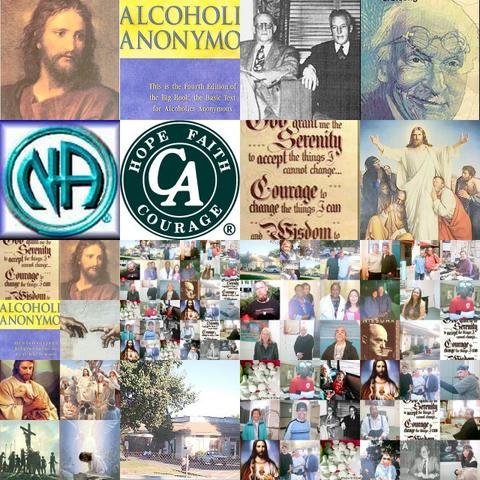http://www.sober.com/blogs/relationship_recovery/archive/2007/11/26/introducing-the-relationship-model-of-addiction.html
As featured in the June, 2007 issue of Recovery Today
In inherent limitation of the medical model is ignoring the fact that ‘pathological dependence’ implies that a relationship, one that is emotional and psychological in nature, has formed with the substance or activity (i.e. gambling, porn, etc.) The ‘pathological dependency’ is a pathological relationship, one in which there is continuous and increasing emotional involvement. The relationship with a source of relief that serves primarily to provide relief from emotional pain or frustration by bringing on a rush or high, pleasure, excitement or as an escape, i.e. use of mind/mood altering substances, gambling, pornography, sex.
Etiology & Pre-disposing Conditions
The etiology of addiction may be accounted for as being the result of non-emotionally nourishing relationships. The Relationship Model of Addiction is based on the premise that a relationship with a source of relief is driven by the need to relieve pain from unmet emotional needs. Emotionally based pain comes from unmet emotional needs, and leaves one in a dysphoric state thirsting for euphoria, or the most easily accessible, effective means of relief possible.
What happens when we’re deprived of emotional nourishment? When we are unloved, don’t receive the affection, attention, acknowledgment and appreciation we require? When we don’t feel heard and understood? When we don’t feel like we belong, or are special in anyway? When we don’t feel connected to someone? There is a build-up of hunger, shame and emptiness and the need to relieve this pain takes over. At some point, desperation sets in. One way or another, we’ll find relief. We’ll either find external sources of relief in the form of substances, activities or other relationships, and rely on tried and proven defense mechanisms at our disposal in the form of denial, delusion and deception.
The Relationship Model of Addiction establishes a new standard for understanding and treating addiction. It expands the disease concept by re-defining addiction as a relationship. The model accounts for the cause of addiction as related to the preponderance of non-emotionally nourishing relationships, unmet emotional needs, the resultant pain and need to relieve that pain. It identifies pre-disposing conditions as a backlog of pain, general state of dysphoria that goes beyond past and current relationships and includes the much larger social context. We know that despite the fact that this pain is subjective in nature, it is no less real or consequential that physical pain. Therefore we may assume that the greater the emotional deprivation, the greater the pain, the greater the need to relieve that pain and the more susceptible one is to becoming addicted.
The Relationship Model brings forth phenomenological or experiential, humanistic and existential perspectives; sheds light on the psychological dynamics of addiction; and holds profound treatment implications. We know that recovering addicts must eventually make the transition from “pathologically” dependent relationships based on the need for relief to sober healthy, intimate, emotionally nourishing relationships. Regardless of one’s experience in past and current relationships, learning some basic principles, pitfalls, challenges and skills, can be an empowering turning point and unleash one’s creative potential.
---------------------------------------------------------------------------------------------
Daniel - A lot of what you're saying rings true to me. I know that when I was getting sober the big AHA! moment came when I realized that continued success wasn't about maintaining a negative relationship with alcohol, but starting to develop and deepen a positive relationship with life. And that's played out in my coaching career as well - when I can get clients to focus on being in a relationship with themselves and with life they tend to sustain growth and progress. Thank you for your insight.
StephenC
++++++++
Daniel Linder is a licensed Marriage and Family Therapist, Addiction Specialist and Relationship Trainer in the San Francisco Bay Area. Author: Demystifying Addiction (The Relationship Model of Addiction) Relational Recovery, just released: Intimacy, The Essence of True Love, and numerous related articles.
Website: http://www.RelationshipVision.com
Addiction, Recovery, Relationship Blog: http://www.sober.com/blogs/relationship_recovery/
To order Books: http://www.relationshipvision.com/books.html
E-mail: Daniel@RelationshipVision.com
Published Monday, November 26, 2007 5:00 AM by RelationshipVision
Filed under: substance abuse, addiction, recovery, recovery coaching, Introducing...The Relationship Model of Addiction
From Peta51=
I appreciate your sharing with us all. I advocate the concept of quality progressive recovery that sees the recovering addict as a triune being of ‘mind-body-soul’. I believe many recovering addicts lack a strong spiritual component in their recovery that makes them more susceptible to suffering a slip that can easily lead to a relapse back into the perils of active addiction. The primary relationship should be with the Creator God as a true higher power, that is, a communion with the Creator via prayer, meditation and spiritual enlightenment. This may seem like mere New Ageism, but such humility helps the recovering addict actually achieve a real cure from the ailments of his or her addiction. The concepts embedded in the 12-Steps of the Big Book came from the Holy Bible. Plus, we need to avoid the individualism typical of the addict, the me-first mentality and put more of an emphasis on helping others. Naturally we need to understand ourselves deeper than ever and process the pain that goes along with that self-understanding, plus, remember the elements involved in our family-of-origin, but we must also address our ‘conscious contact with God’ in order to see ourselves with a humble perspective for our continued progressive recovery and spiritual growth.
<>+<>+<>+<>+<>+<>+<>+<>+<>+<>+<>+<>
http://casa-12steps.blogspot.com/
http://groups.yahoo.com/group/CASA-12-Steps-Program/
<>+<>+<>+<>+<>+<>+<>+<>+<>+<>+<>+<>

No comments:
Post a Comment
Please give feedback with respect!